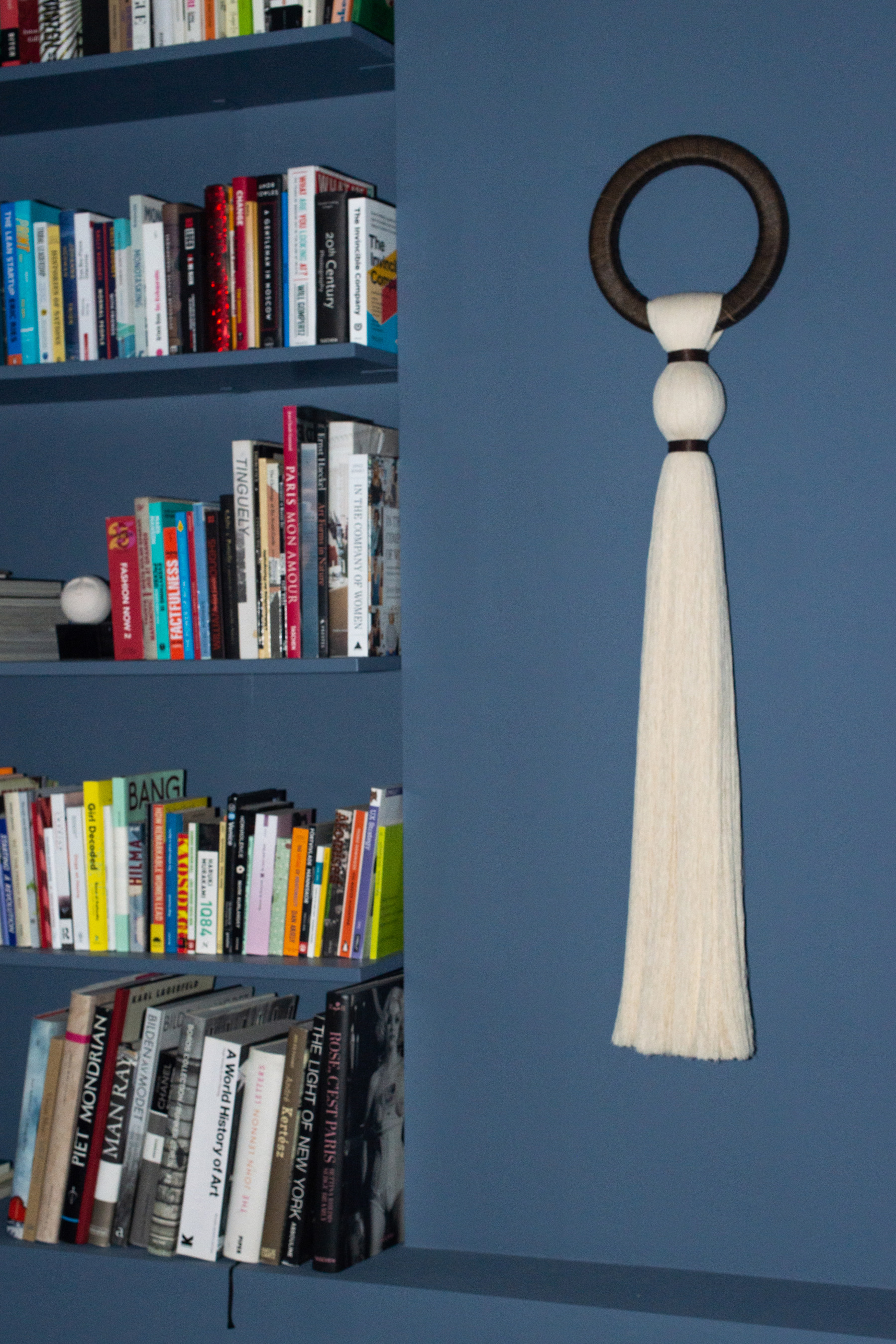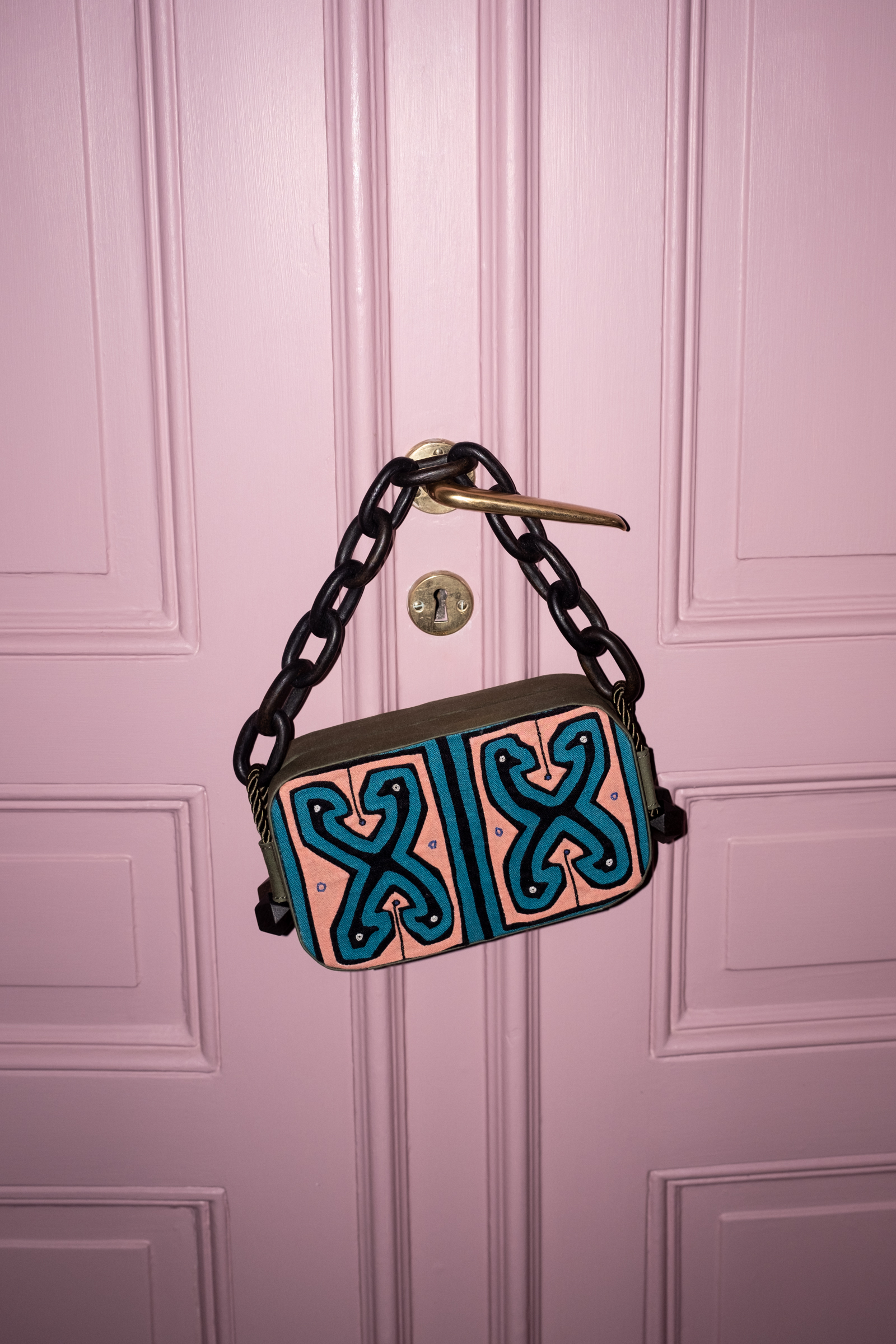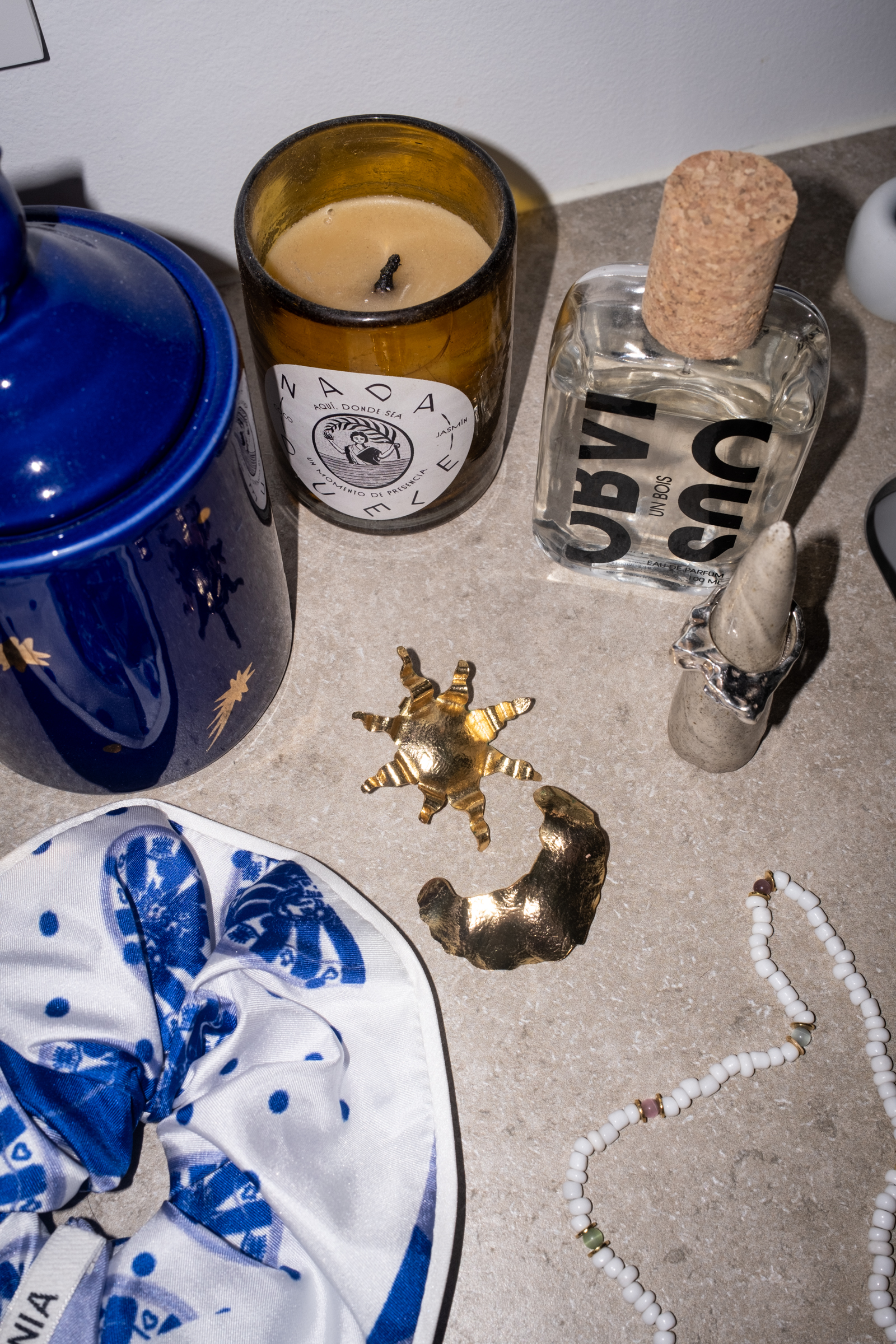Ann-Kathrin Zotz and Caroline Foerster go way back. The seeds of their partnership were sown far before their digital concept store White Label Project was first launched. Till today, travel has been formative for them, from providing a common ground in their friendship to informing their respective career journeys. And their approach to travel and the world at large goes beyond skimming the surface: it’s intentional, curious, and thoughtful. This shared attitude, combined with a keen enthusiasm for building and fostering personal connections, has led White Label Project to become more than just a store: it’s a community hub and a platform that reclaims and recontextualizes the narrative around cultural traditions, craftsmanship, and creativity.
With Ann-Kathrin and Caroline as our guides, we wandered through the streets of Stockholm. As we paid a visit to neighborhood bistros, art galleries, and parks (accompanied by Caroline’s dog Babou), we mapped the intersection of their journeys with the evolution of White Label Project.

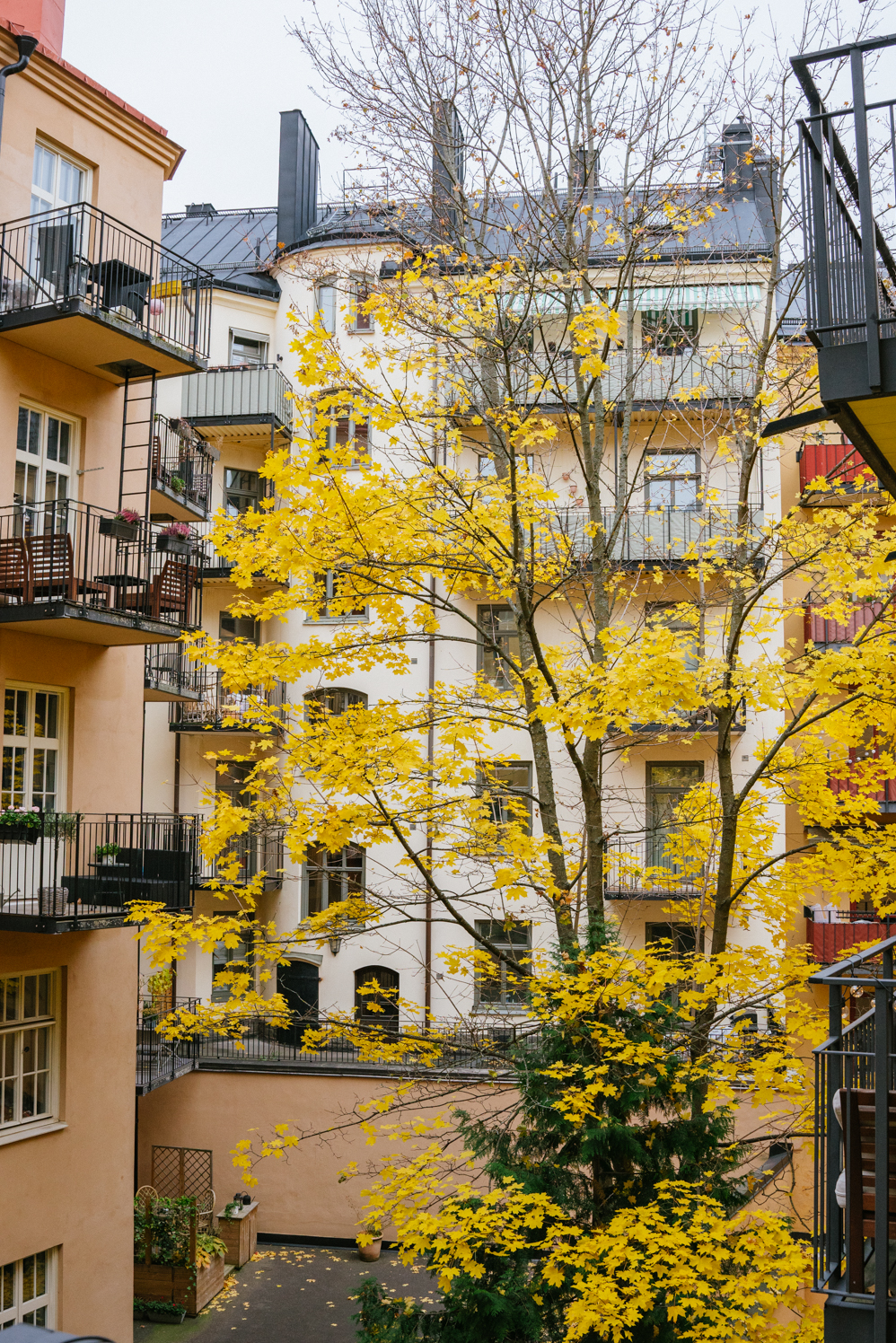
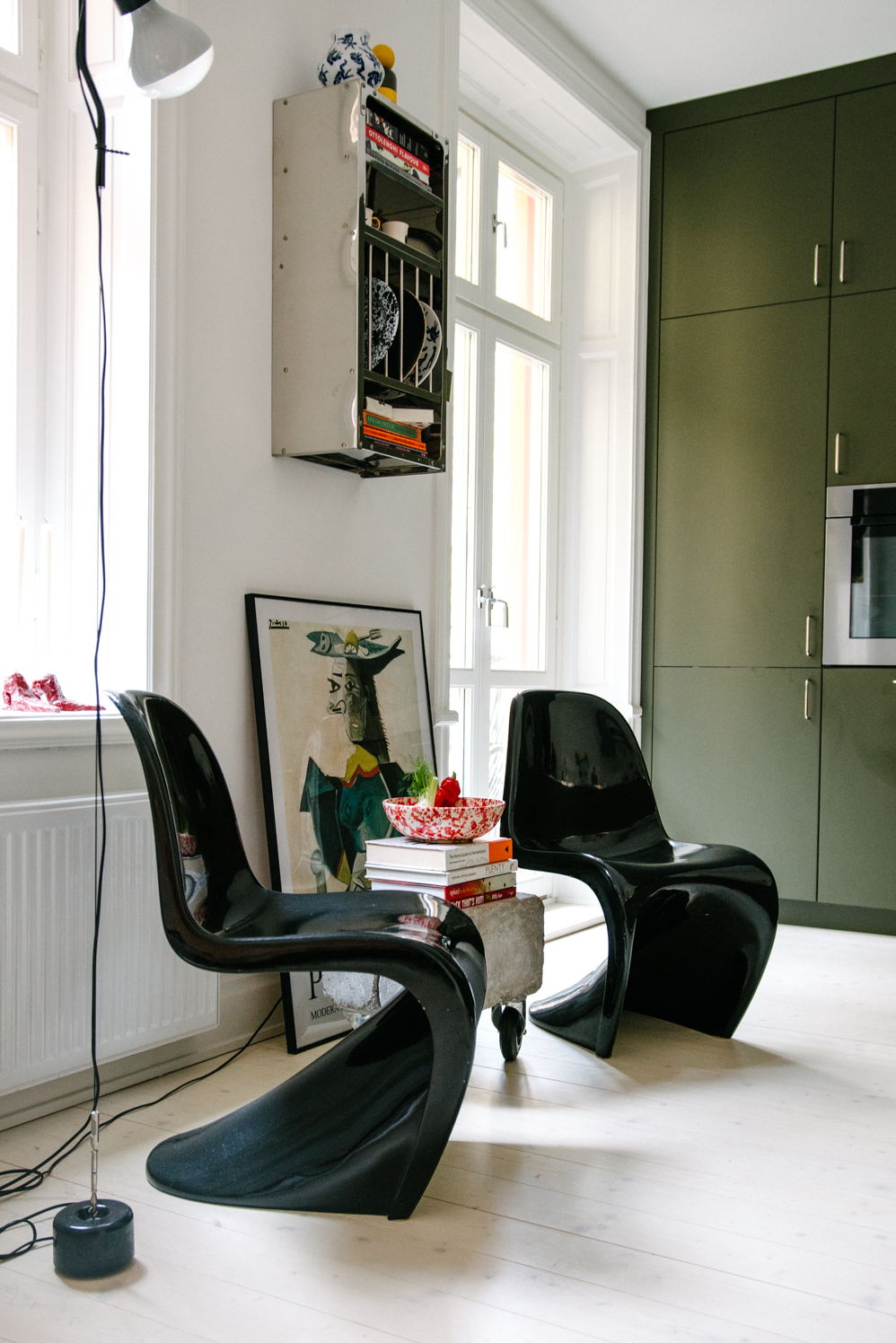

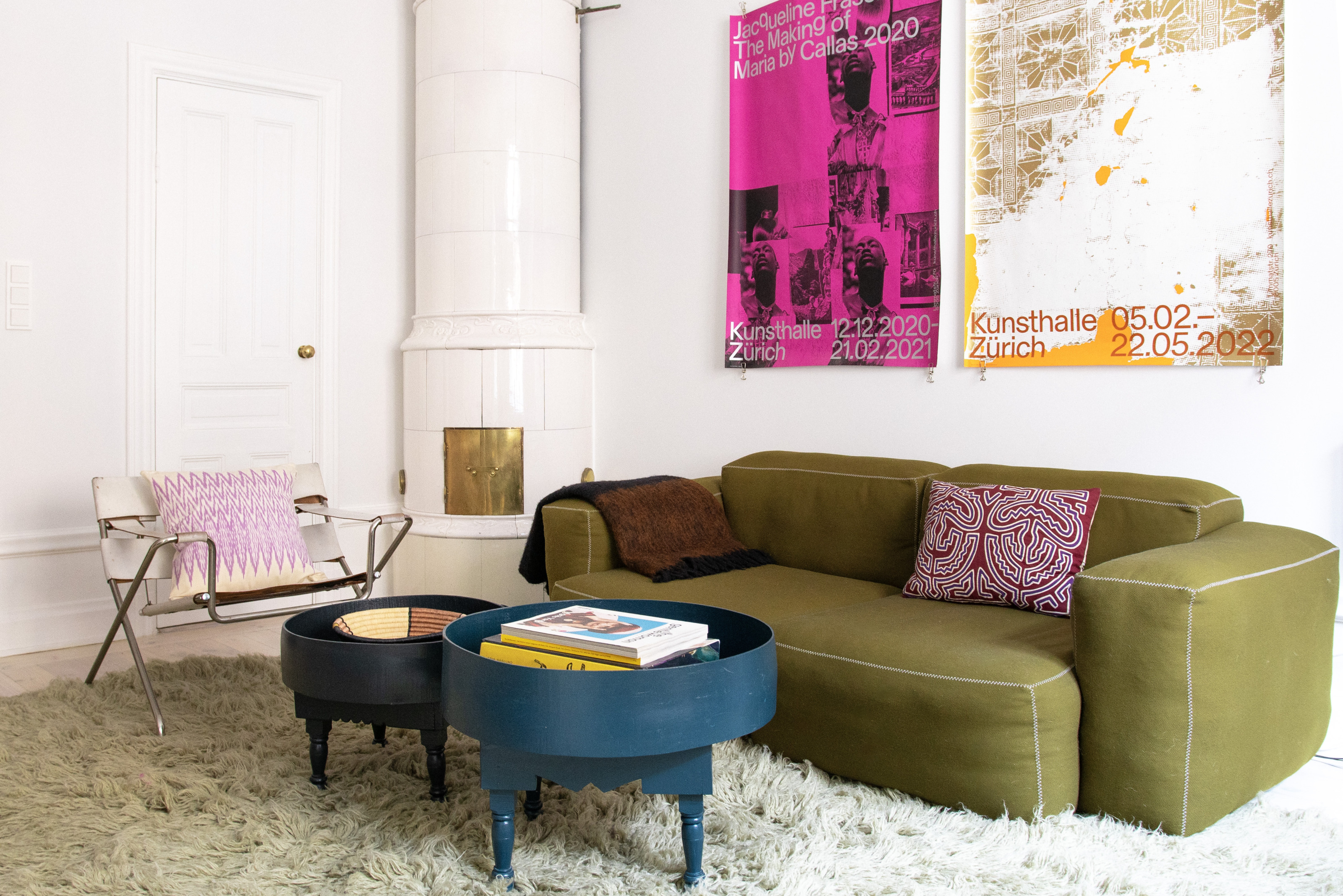
Ann-Kathrin and Caroline first met in Paris, a city that was new to both of them. Their shared love of fashion and design was enriched by their discovery of the city, exploring galleries and museums with eager eyes (“We would even sneak into Paris Fashion Week!”). Parting ways after their studies, they both found themselves on career paths that moved in the periphery—but not quite the sphere—of the design and fashion industry. Despite the distance between them, their conversations and that first spark of a partnership were sustained across years, time zones, and locations.
Caroline worked as a brand strategist for over a decade, “adjacent to the industry, but not quite in the industry,” while Ann-Kathrin joined the international development sector: “I worked about ten years for the United Nations with the mindset to empower smallholder farmers and trade sustainably.”
Now, from Stockholm, they reminisce on the experiences that have shaped the spirit of White Label Project. The deliberate, individualized perspective they have on design permeates the memories their company was molded from. For Caroline, the travels to her husband Ishan’s hometown in India informed a desire to expand the narrative surrounding “design hubs” across the globe. “Whenever we go to Mumbai, I look up galleries, and there are so many, but they’re hidden,” she says. “I live in Stockholm, and everything is quite accessible. It’s a “design city”, so you can find everything. But when you have to look for it, you discover the whole story. The search is really fun and inspiring, this whole process of finding cool designers when you travel places that aren’t known for being classical design destinations.”

“Our original idea was really to economically empower women where they are, where they live, and maximize as much of the value in the countries of origin as possible.”


Ann-Kathrin recounts a similar experience in the Northern Peruvian Andes. “There was a lady who was known for her craft of weaving home textiles and bags in modern shapes and colors, and after one late dinner, we realized we still had time to visit her. In some ways, it was very adventurous—there was no light and no clear path. We had to leave the car at one point and travel twenty minutes by foot towards this little hut. It was an eye-opening event for me, to be able to listen to her story, and for her to explain her craft.”
These types of encounters were manifold and significant, and Ann-Kathrin and Caroline continued meeting regularly throughout the years, pooling an ever-growing wealth of experience and cache of ideas. And then, one evening in a London pub, those ideas became tangible. “I already had a business in mind, and I knew Caroline would be a really good partner to do it with,” Ann-Kathrin says. “But we didn’t want to do whatever project together—we wanted to give a platform to small businesses in design and fashion so that they could be seen. We had a clear goal of empowering and generating more income for women in the Global South. I thought it would be super complicated. And that was solved by Caroline saying, actually, no, we can use a platform called Shopify and easily build it there. We are a match that complements each other.”
White Label Project was launched in 2019. Since then, it has expanded to include more than 40 carefully selected luxury fashion and design brands in its network. The brands hail from worldwide, ranging from Ghana to South Africa, India to Mexico.




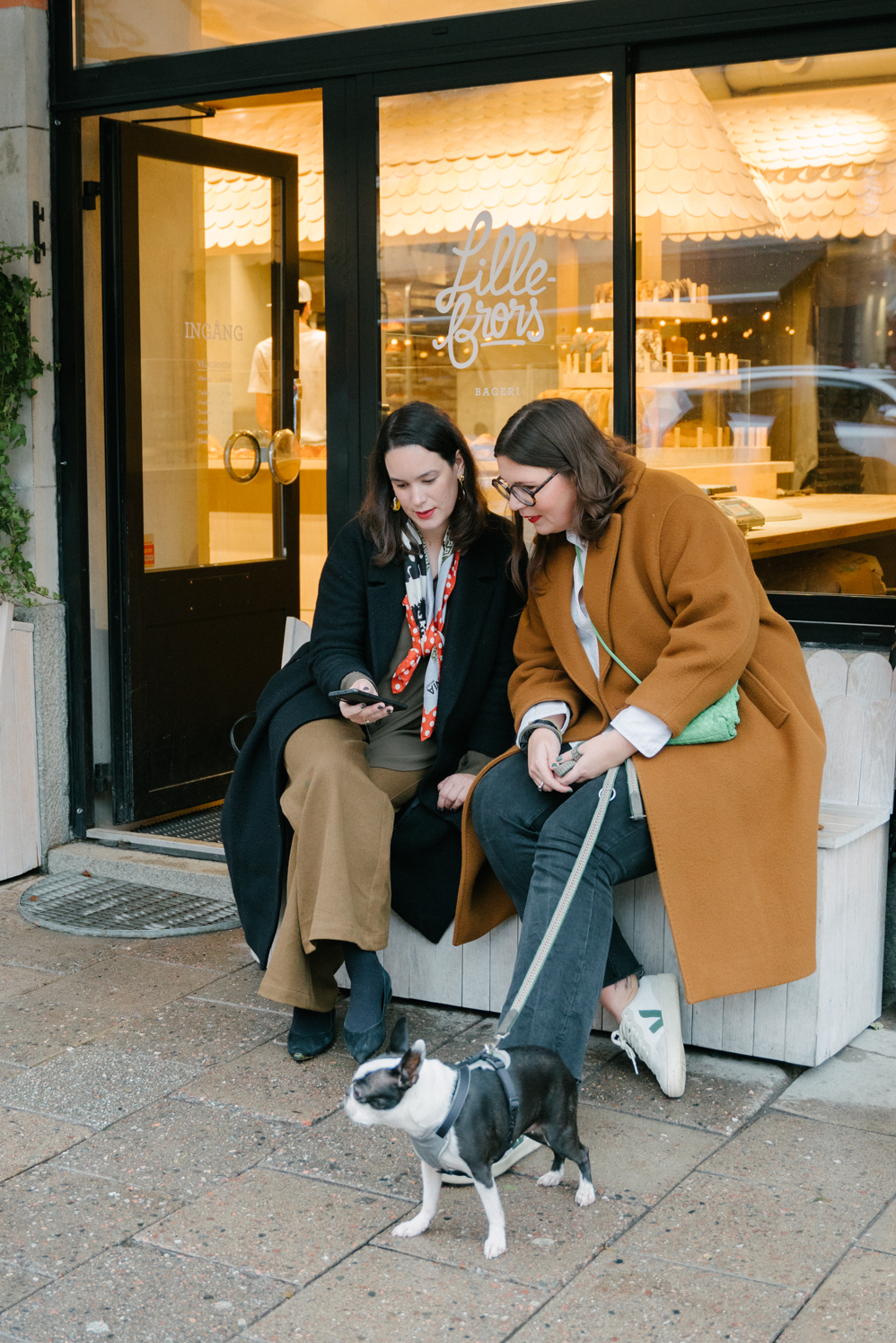
Parallel to their growing network, e-commerce platform, and pop-up events, they spend time collating guides for the cities that receive less of a spotlight: “Nairobi, Cape Town, Accra, Mumbai . . .” in order to shed light on the diversity and quality of design aside from the typical locations of London, Paris, and Tokyo. “We feel that it also gives an interesting context to the brands we work with,” Caroline explains. “When we can show where the inspiration comes from, and what other cool things exist around them—that’s what inspired us to start with this series of design guides. It’s necessary to change the narrative [behind what is considered a high-end brand] to equalize the industry.”
Ann-Kathrin and Caroline understand the weight of truly empowering brands and are eager and inclined to make the effort. They have a pragmatic approach considering the complexities of the goal, and that approach sees ambitious moves to generate large-scale change. “It wasn’t the very first decision we made, to work with women only,” Ann-Kathrin says. “We saw that when we went through all the criteria we had for ourselves, we ended up working with mainly women. And that turned out to be an amazing channel towards our goal of empowering women globally.”
“When we talk about empowerment, we talk about empowering economically. But that’s intertwined with social empowerment.”
Empowerment itself is a term that could be considered weaponized by corporations or retailers for profit; a word that appears so often it may, on occasion, seem divorced from its original definition. Ann-Kathrin and Caroline use it with purpose and strengthen their definition in their practice. “We believe economic empowerment for women is one of the most important angles to start with in establishing an equal society. When women are generating income, it gives more appreciation to the women, not only because they are contributing economically—it gives appreciation for what they do,” Ann-Kathrin says. “When we talk about empowerment, we talk about empowering economically. But that’s intertwined with social empowerment.”
Caroline also points to their ethos of sustaining long-term relationships with brands as a tool for empowerment: “When you buy something, you do it because you like the product, but the brand also has something to do with it. For there to be a brand and a direct relationship with the end customer, it’s a strategic tool we use to empower long-term relationships with brands and customers. When people discover them, when they buy and share them, it gives them visibility for the future.”
Each and every brand in their network has a story that Ann-Kathrin and Caroline have delved into and taken an active part in. Of their ever-evolving network, they use Colombian brand Mola Sasa, founded by Yasmin Sabet, as a prime example of what encompasses their ethos. Mola Sasa originated with the idea of unearthing a new design concept for Colombian traditional craft and collaborates with various indigenous communities across the country. They have worked together for years, and intend to continue for many more. “We interact with all the brands we work with all the time,” Ann-Kathrin says. “The ones we’ve had since we started, and also the new ones. It’s a very hands-on approach, only done by myself and Caroline at the moment. It means we’re always on the lookout.”



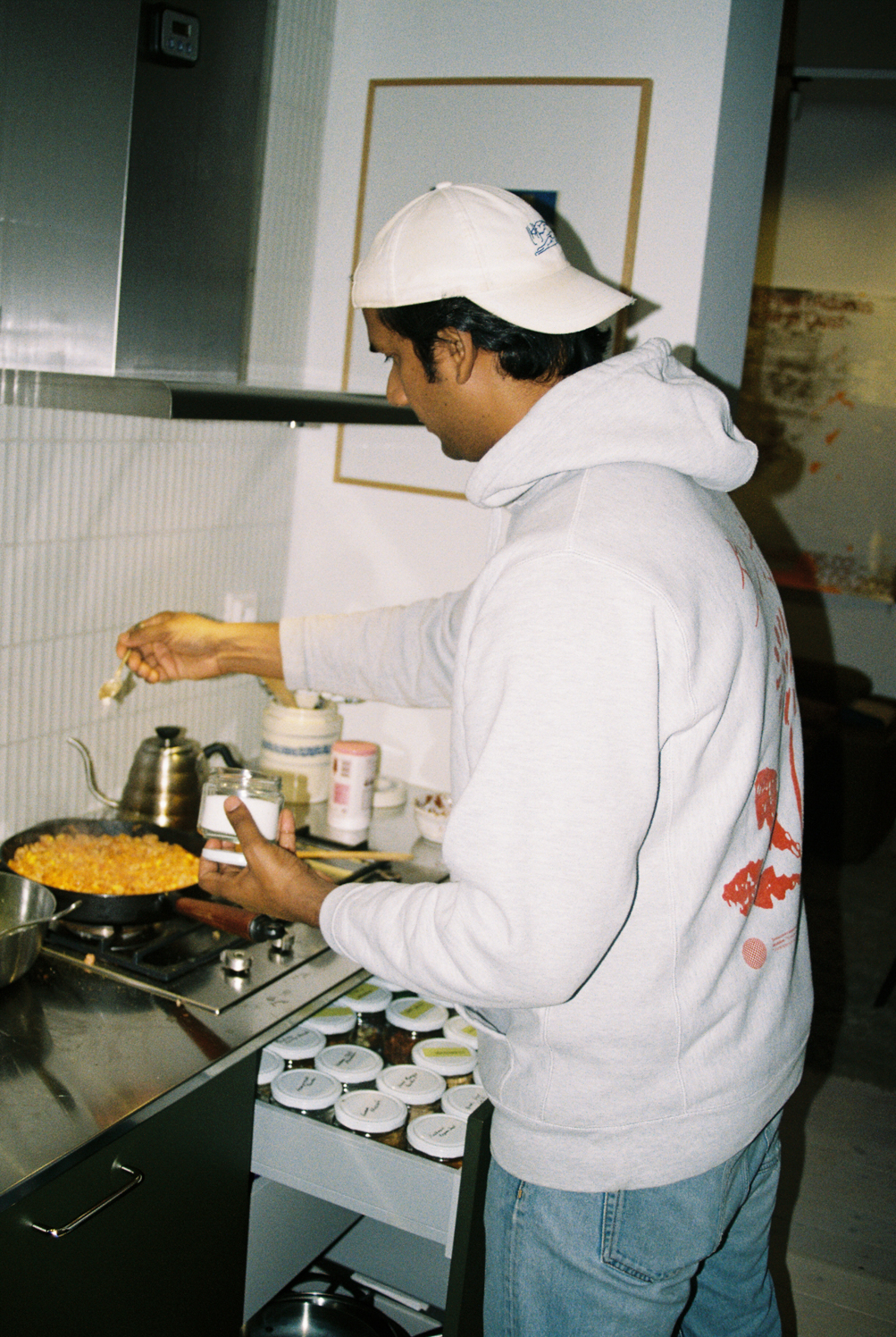
As such, inspiration in their daily lives isn’t difficult for them to find. It comes from the communities on their doorsteps, the network they’ve cultivated and nourished, and the connections from their work that have guided them to where they are now. “I’ve been working in the design and graphic design industry for ten years, so I get a lot of inspiration from that community,” Caroline says. “I’m lucky to live in an area where I have really nice places around the corner . . . for me, these neighborhood places are the best; I’ve been abroad a lot, so now I really appreciate knowing my coffee guy, buying from a shop around the corner. Just being present in my everyday life.”
Touching on the future of sustainability, they approach it judiciously: they harbor a sense of steady, unflappable realism balanced with faith that change can be made through consistent and dynamic work. The shift towards buying second-hand is acknowledged, but they also stress the importance of recognizing the spike in shallow trends that wear a veneer of sustainability but still contribute to rampant and unsustainable consumerism. “There’s more of a discussion around sustainability,” Caroline says, “and there is a market. But we need to start looking at sustainability as something that has the status [consumers] look for. It’s about combining high fashion and sustainability because you shouldn’t have to choose just one. A cool style and sustainable design definitely exist. But to make more of the sustainable initiatives out there, we need to team up. We need to seek less competition, more collaboration.”
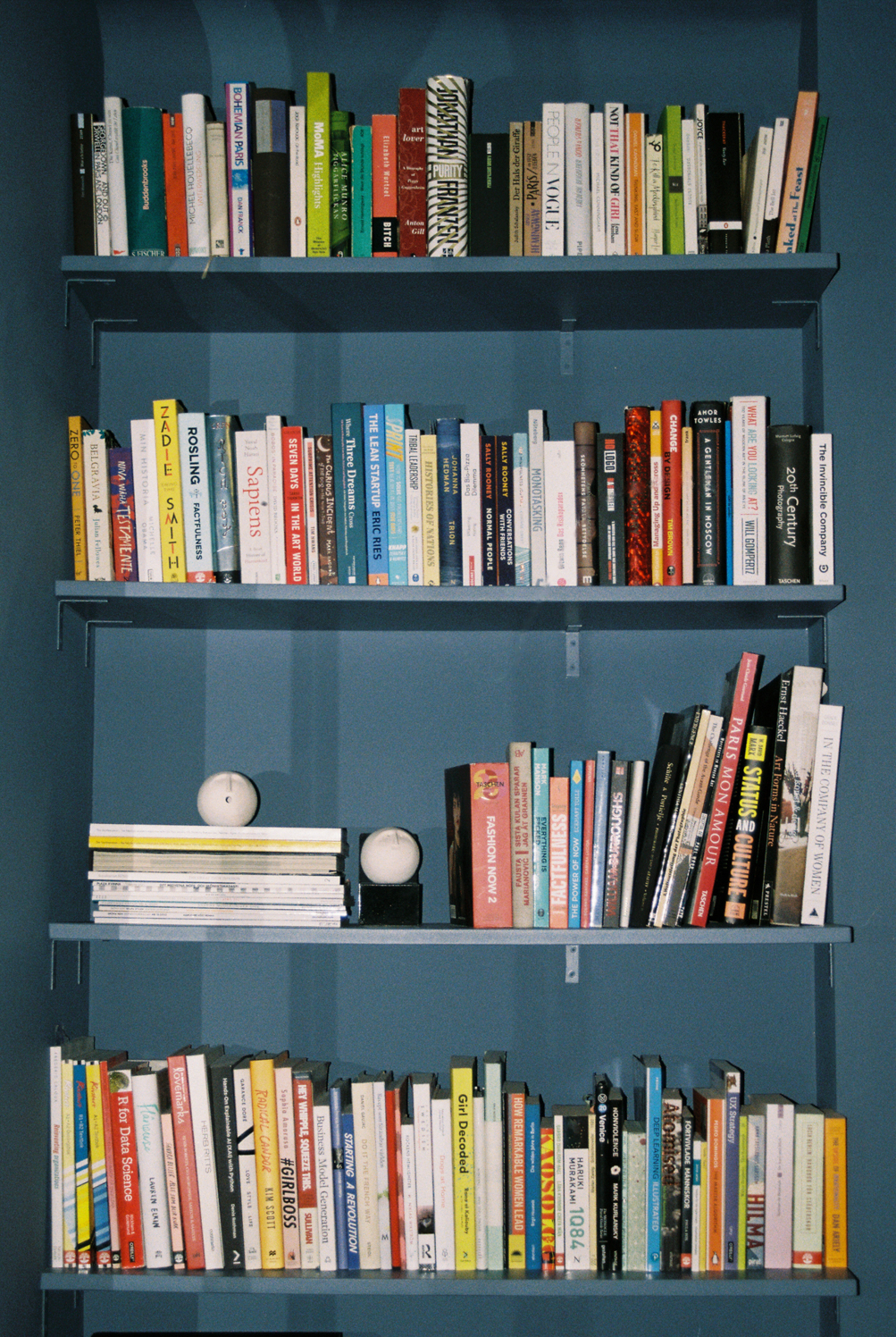
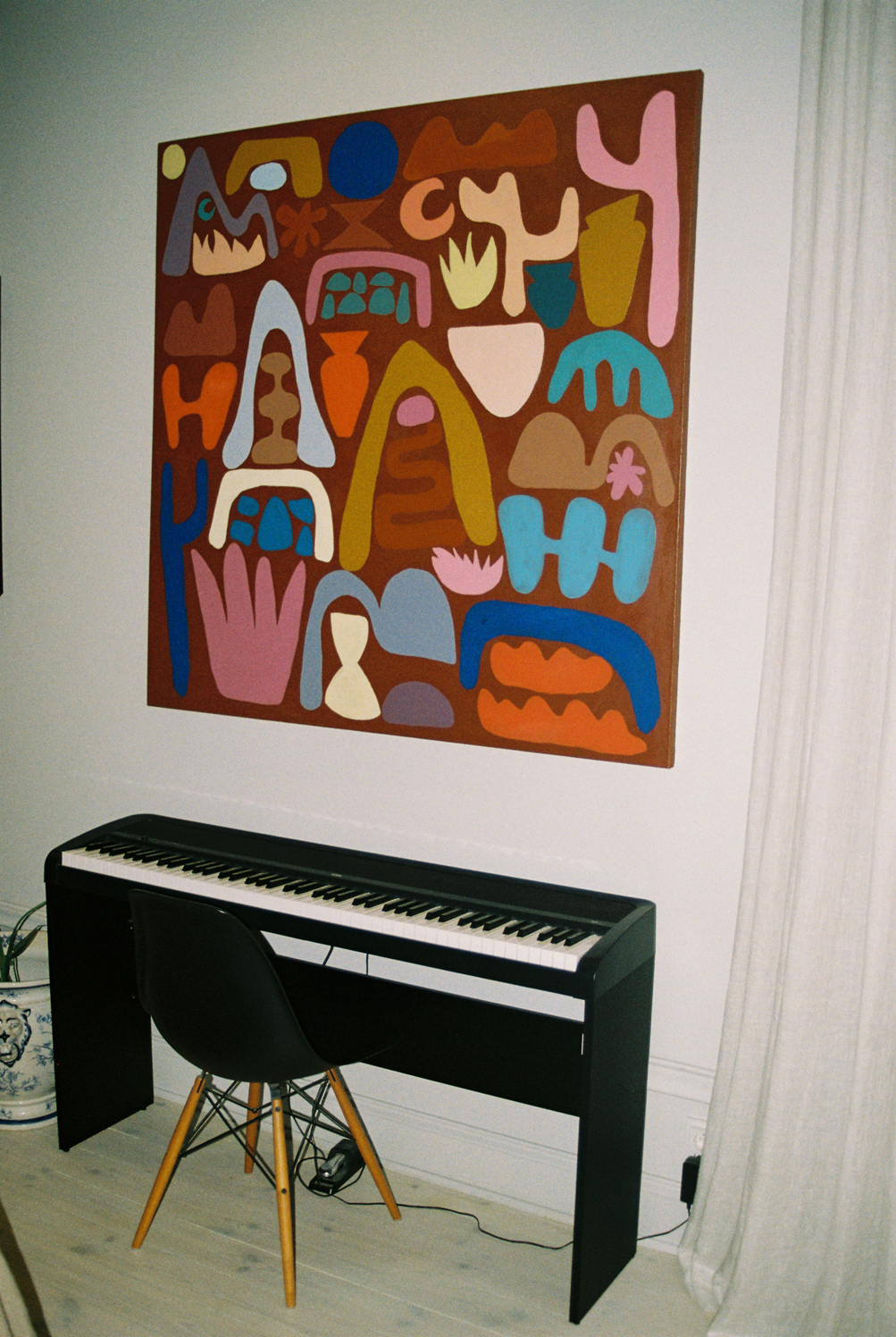
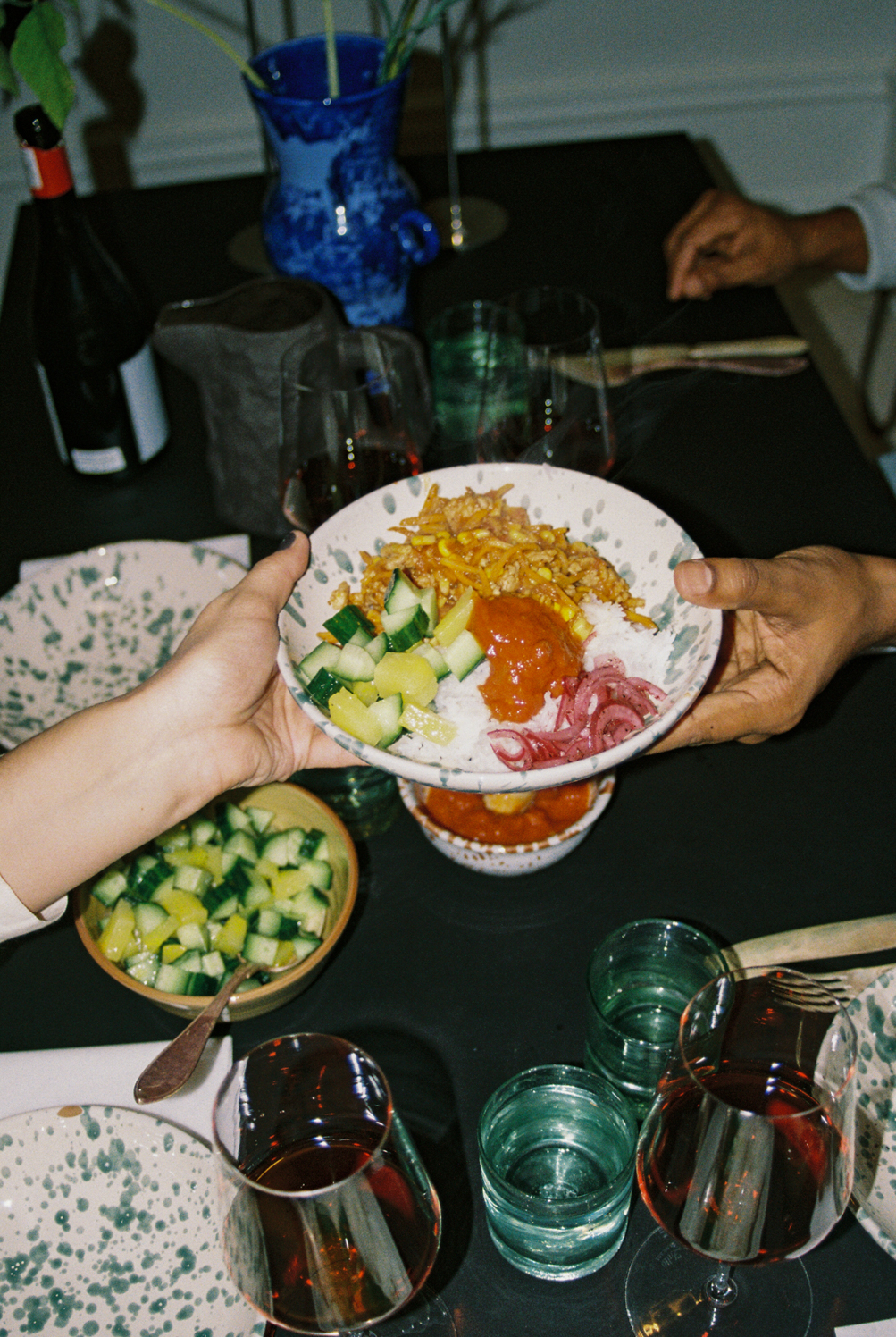
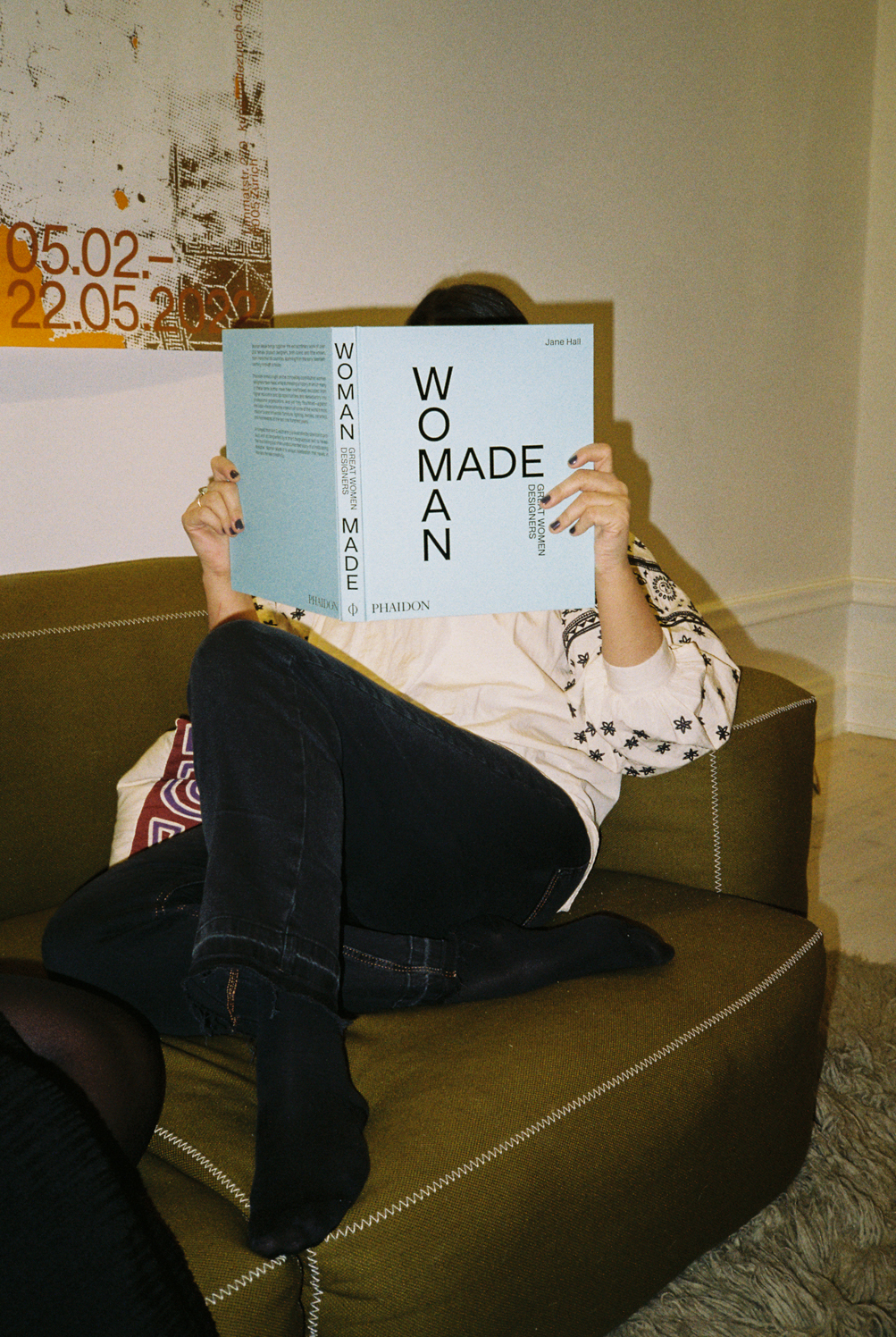
Ann-Kathrin Zotz, a Frankfurt-based development economist and entrepreneur, and Caroline Foerster, a brand strategist and consultant, founded White Label Project in 2019. White Label Project consists of 40+ female-led luxury design and fashion brands from more than 20 countries. You can find their City Design Guides on their Instagram and soon on their website.
Ann-Kathrin and Caroline continue to plan, curate, and host interdisciplinary spaces and events that fuse their love of design with exciting happenings and topics such as cultural appreciation and the value of brand building all of which will be shared on their site or via their Instagram.
Text and Interview: Ellen McBride
Photography: Carmen Triana

